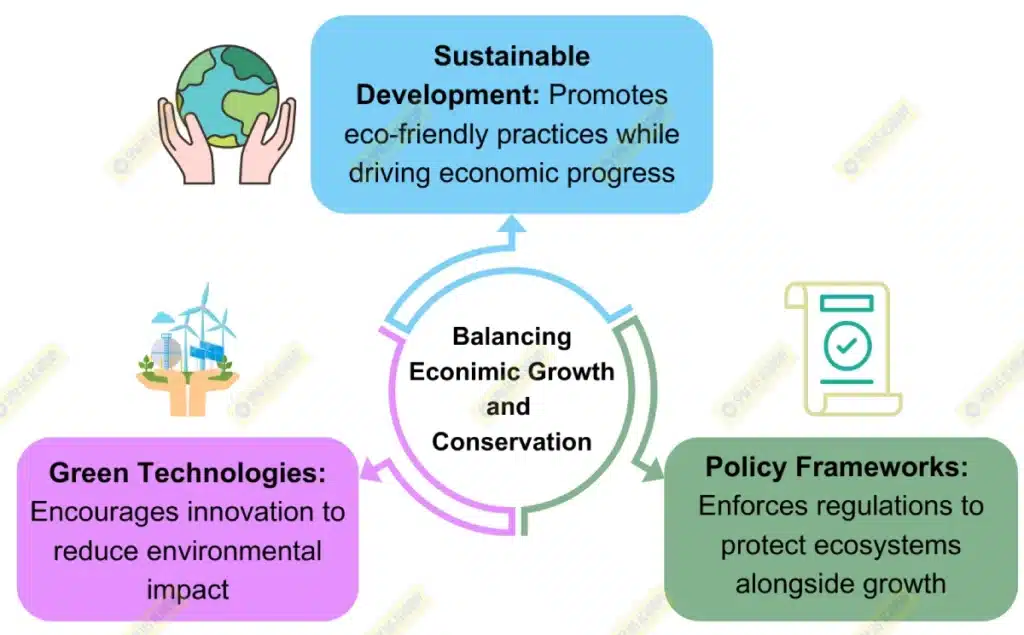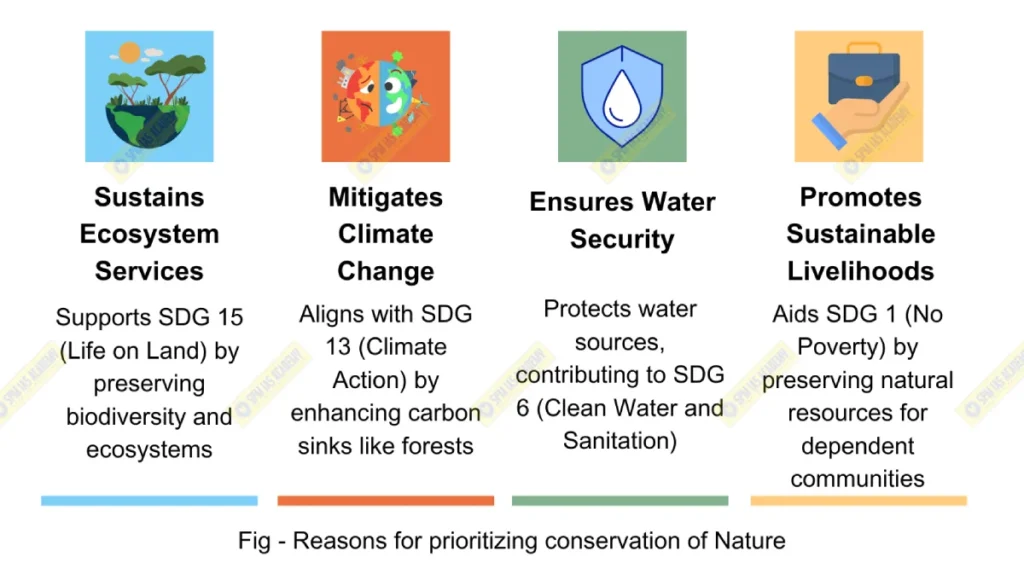As global climate change intensifies, it is imperative to shift the focus from relentless economic growth to the conservation of nature. Mahatma Gandhi once said, “The earth provides enough to satisfy every man’s needs, but not every man’s greed,” emphasizing the urgent need for a sustainable approach to development that balances human progress with environmental stewardship.
Reasons for Prioritizing Conservation of Nature:
1. Existential Threat of Climate Change:
Climate change is a critical threat, with global temperatures having already risen by approximately 1.1°C above pre-industrial levels, according to the IPCC. If current trends continue, the world is on track to exceed 1.5°C by as early as 2030, leading to catastrophic impacts such as more frequent and severe natural disasters, which could displace over 200 million people by 2050 (World Bank).
2. Long-Term Economic Stability:
Environmental degradation directly undermines economic stability. The World Economic Forum’s Global Risks Report 2023 highlights that environmental risks, including biodiversity loss and extreme weather, dominate the top long-term risks to the global economy. For example, the cost of natural disasters globally in 2022 was estimated at over $300 billion (Aon). Investing in conservation ensures that ecosystems, which provide services worth $125 trillion annually (WWF), remain intact and capable of supporting economic activities.

3. Holistic Development and Human Well-being:
Conservation is vital for human well-being, as seen in the impact of air pollution, which causes 7 million premature deaths annually (WHO). Access to clean water, which is threatened by environmental degradation, remains a challenge for 2.2 billion people globally (UNICEF). Ensuring environmental sustainability directly contributes to the quality of life and overall human development, beyond mere economic metrics.

4. Global Equity and Justice:
Climate change disproportionately affects the most vulnerable. The Global Climate Risk Index 2023 reports that low-income countries bear the brunt of climate impacts, with countries like Mozambique and Haiti frequently ranking among the most affected. Pope Francis reminds us, “The earth herself, burdened and laid waste, is among the most abandoned and maltreated of our poor,” underscoring the need for environmental justice as part of global development efforts.
Balancing Economic Growth and Conservation:
1. Sustainable Development:
The shift towards sustainable development is crucial, as highlighted by the UN Sustainable Development Goals (SDGs), which aim to balance economic growth with environmental protection. Countries like Costa Rica, which has achieved 99% renewable energy usage while maintaining economic stability, exemplify how conservation and growth can coexist.
2. Technological Innovation:
Green technologies offer a pathway to achieve economic growth while mitigating environmental impacts. The global renewable energy market, worth over $881 billion in 2022 (IMARC Group), is expected to grow rapidly, driven by investments in solar, wind, and battery technologies. Albert Einstein’s insight, “We cannot solve our problems with the same thinking we used when we created them,” underscores the need for innovative solutions to address environmental challenges.
3. Redefining Growth Metrics:
Countries are increasingly recognizing the need to redefine growth metrics. New Zealand, under Prime Minister Jacinda Ardern, introduced the Wellbeing Budget, which measures success beyond GDP by including environmental and social indicators. Similarly, Bhutan’s Gross National Happiness (GNH) index offers an alternative model that prioritizes ecological sustainability and well-being over mere economic output.
Given the undeniable realities of climate change, the global discourse must shift from a narrow focus on economic growth to a broader emphasis on the conservation of nature. By integrating environmental stewardship into our development models, adopting innovative technologies, and redefining success, we can create a sustainable future where economic prosperity and environmental health go hand in hand. This approach ensures that both humanity and nature can thrive in the face of the global challenges we currently face.
Check out UPSC Coaching Centre Guwahati | APSC Coaching Centre Guwahati | Crack APSC Exam | UPSC Civil Services Exam | Ethics Paper in UPSC Exams












